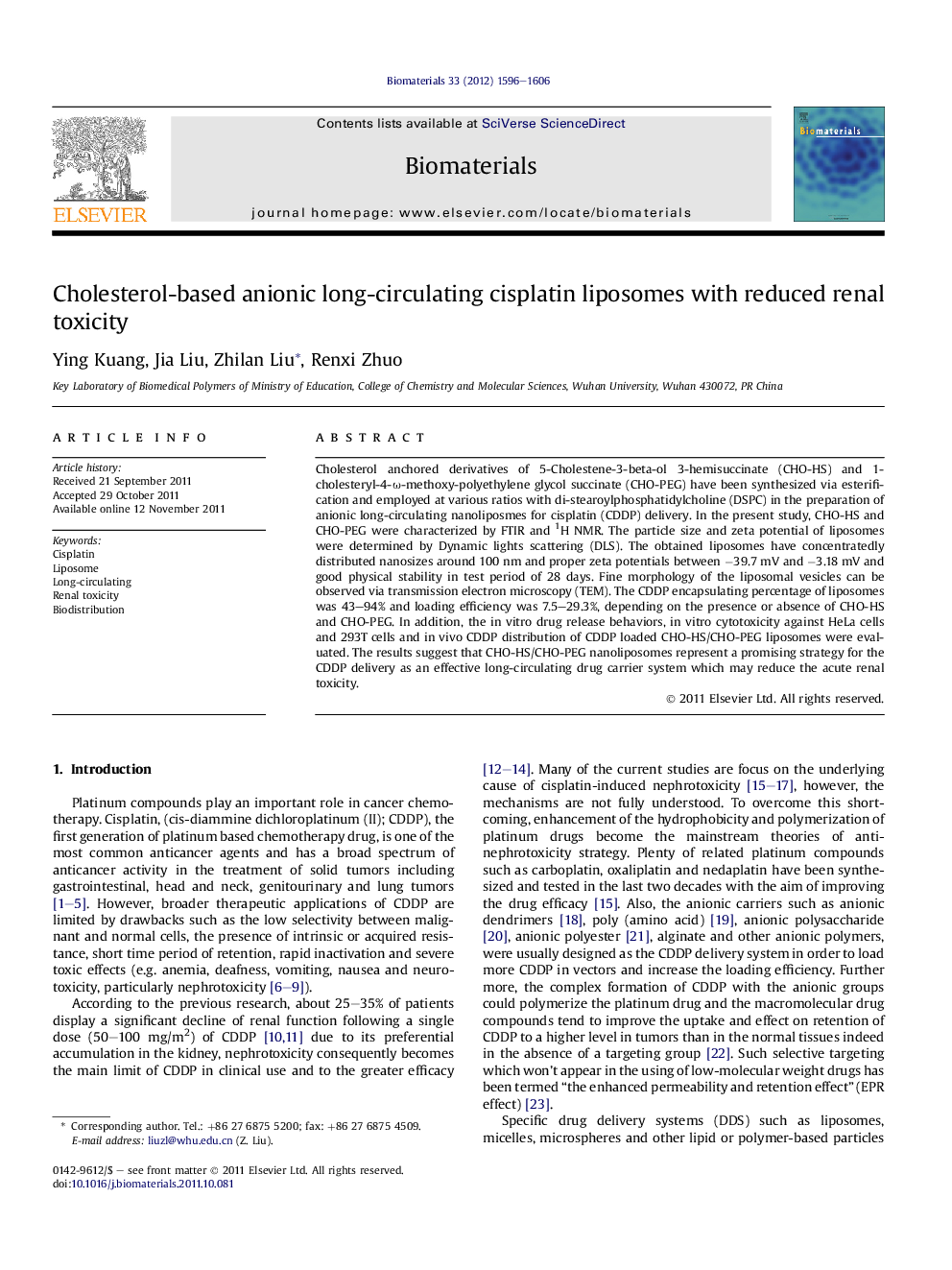| Article ID | Journal | Published Year | Pages | File Type |
|---|---|---|---|---|
| 10229861 | Biomaterials | 2012 | 11 Pages |
Abstract
Cholesterol anchored derivatives of 5-Cholestene-3-beta-ol 3-hemisuccinate (CHO-HS) and 1-cholesteryl-4-Ï-methoxy-polyethylene glycol succinate (CHO-PEG) have been synthesized via esterification and employed at various ratios with di-stearoylphosphatidylcholine (DSPC) in the preparation of anionic long-circulating nanoliposmes for cisplatin (CDDP) delivery. In the present study, CHO-HS and CHO-PEG were characterized by FTIR and 1H NMR. The particle size and zeta potential of liposomes were determined by Dynamic lights scattering (DLS). The obtained liposomes have concentratedly distributed nanosizes around 100 nm and proper zeta potentials between â39.7 mV and â3.18 mV and good physical stability in test period of 28 days. Fine morphology of the liposomal vesicles can be observed via transmission electron microscopy (TEM). The CDDP encapsulating percentage of liposomes was 43-94% and loading efficiency was 7.5-29.3%, depending on the presence or absence of CHO-HS and CHO-PEG. In addition, the in vitro drug release behaviors, in vitro cytotoxicity against HeLa cells and 293T cells and in vivo CDDP distribution of CDDP loaded CHO-HS/CHO-PEG liposomes were evaluated. The results suggest that CHO-HS/CHO-PEG nanoliposomes represent a promising strategy for the CDDP delivery as an effective long-circulating drug carrier system which may reduce the acute renal toxicity.
Related Topics
Physical Sciences and Engineering
Chemical Engineering
Bioengineering
Authors
Ying Kuang, Jia Liu, Zhilan Liu, Renxi Zhuo,
